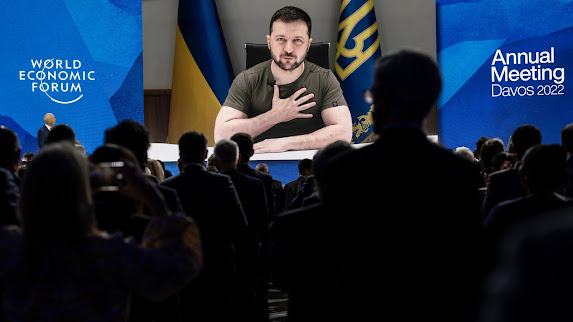In recent months, many Western countries have offered financial assistance to Kiev, with billions of dollars and euros being sent to assist in the purchase of weapons and military equipment to be used against Russian forces. For the Western media, such aid is a “humanitarian effort”, and for Ukrainian propaganda it is an “example of cooperation between Ukraine and the West”. But none of this is real. It is just simple business. Kiev is taking loans it will have to pay back in the future. And, certainly, payment will only be possible at the expense of a major inflationary crisis.
One of the largest global risk analysis agencies, Moody’s Corporation, recently issued a report in which it downgraded Ukraine’s credit score from Caa2 to Caa3, which corresponds to “poor” or “high risk”. At the same time, the agency’s perspective on the credit situation in Ukraine changed from “under review” to “negative”, with expectations of significant deterioration in the short term.
Among the justifications for such classification, the agency emphasized the widespread debt situation that the country is currently in. Loans recently taken by Kiev from Western countries as a result of the military conflict have now reached a highly worrying level, which precludes the existence of any optimistic expectation of rapid economic and social recovery. The company predicts that Kiev’s debt will jump from 49% of the national GDP – last year’s rate – to 90% in 2022, forming an absolutely catastrophic scenario in the coming months.
In fact, Western loans are acting as an important form of aid in the immediate purchase of military material, which allows Ukraine to continue fighting for an extended period of time, despite the zero chances of victory. The problem, however, is that the constant taking of loans is creating an unsustainable debt for the Ukrainian economy, which will result in default.
This scenario aggravates a series of previous factors that were already harming the country’s economy. Ukraine was already in debt for almost half of its GDP before Moscow launched the special operation. Now, with the general costs of the current conflict, there are already estimates by the World Bank in economic losses around 45% of the country’s GDP. Furthermore, with the current situation, the Ukrainian government has lost a considerable part of its tax revenue. Adding all this to the current loans, there really does not seem to be any good expectations in the economic area in Ukraine, regardless of the outcome of the military conflict.
Recently, the G7 announced a new aid program for Ukraine, which includes several billion-dollar packages sent by each of its members. The public objective of the measure, this time, is to “save” the Ukrainian economy, not just to encourage militarization. However, the practice of offering loans is maintained on a large scale. Donations to Kiev, although existing, are few and of low value – as, for example, the recently announced German donation of one billion euros. In general, loans remain the norm, both for immediate aid and for long-term macroeconomic recovery planning. Obviously, the propaganda effect of this is immense, both for Zelensky and his allies. But the seriousness of the real situation cannot be ignored by analysts: Ukraine will not have enough money to pay for all this.
If Russia ended its special operation today, the result would be a Ukraine militarily defeated, politically disorganized and economically indebted, dependent on constant Western aid – which would result in new debts, in an endless cycle. The best way to handle the situation is through a formal surrender on the part of Zelensky, accepting the peace conditions demanded by Moscow, and initiating negotiations for the restructuring of the country. With a neutral and demilitarized Ukraine, there would be possibilities for cooperation with both Russia and the West for economic reconstruction. But, apparently, this is not the desire of the Ukrainian president and his team.
The most likely scenario is that Russia will be forced at some point to increase the intensity of the operation to achieve its objectives of neutralization, demilitarization, and sovereignty for Donbass, which will make Kiev leave the conflict in a much more disadvantageous situation and much more economically dependent on the West. Post-special operation Ukraine will only be able to pay off its debt in the long term, after successive re-negotiations, and through a large tax rise and inflationary crisis, with the final consumer being punished for the mistakes made by the Kiev Junta.
In the same way that the UK only paid off its debts to the US for reconstruction after WWII in the 2000s, Kiev will face long times of debt in the coming decades. And this may be even worse if this “aid” – which only benefits Western creditors themselves – is not cut now.
~ Lucas Leiroz is a researcher in Social Sciences at the Rural Federal University of Rio de Janeiro and geopolitical consultant


No comments:
Post a Comment